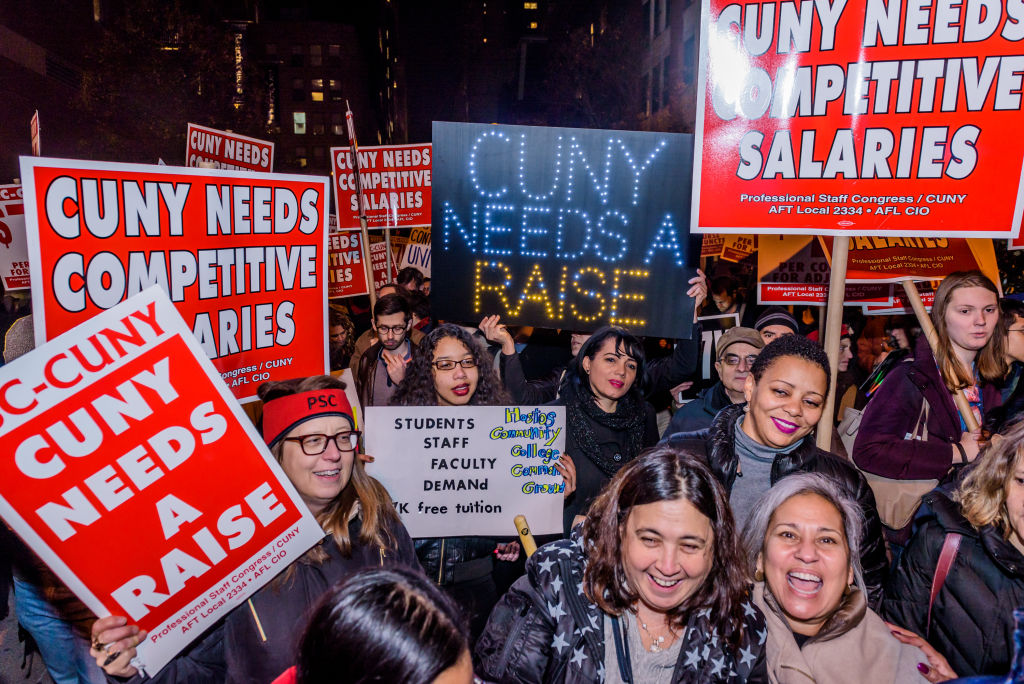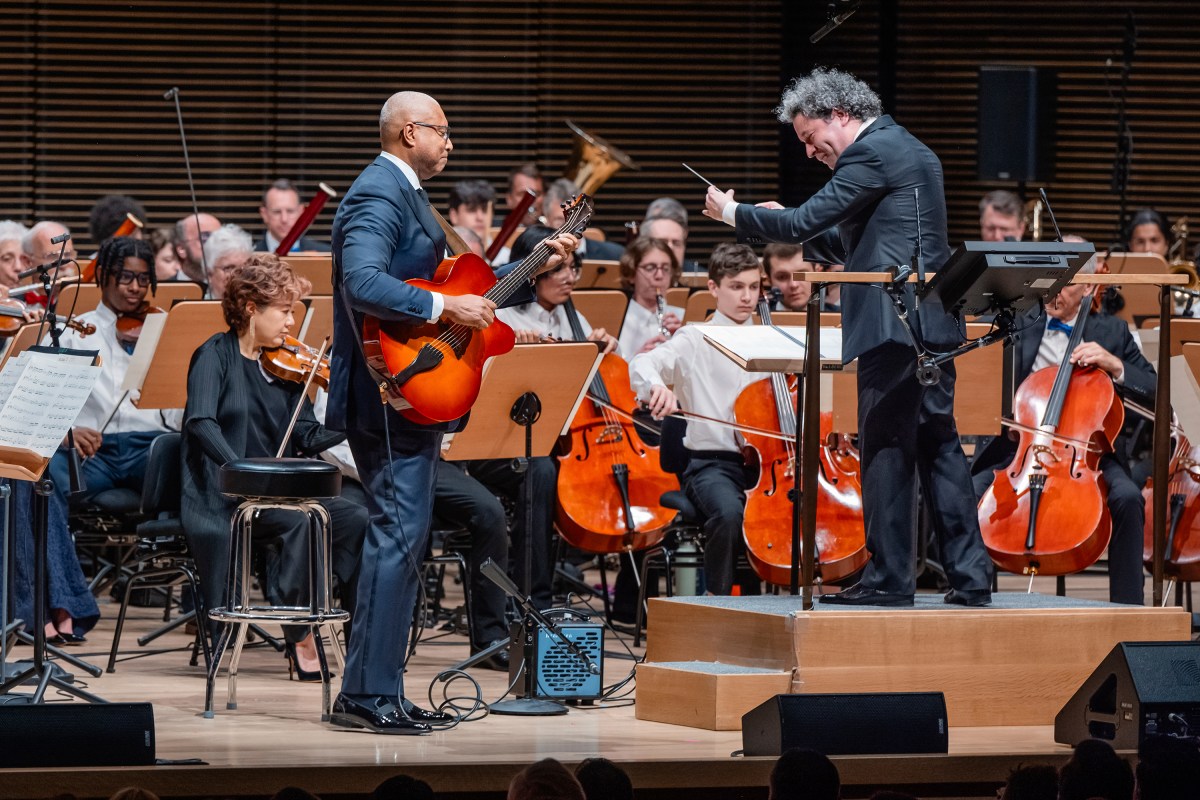City University of New York adjunct professors have been pushing for a living wage since 2017. Now that the school’s Board of Trustees has ignored their demands, some members of the CUNY union representing adjuncts, faculty and professional staff, Professional Staff Congress (PSC), are pushing for a strike.
“A half-million students in New York City attend CUNY,” said Barbara Bowen, president of PSC. “A huge number of the people working in the city today went to CUNY themselves or are hoping that their children or grandchildren attend CUNY. It is a travesty the public university that most working people rely on in the city is consistently underfunded.”
At a public hearing for CUNY’s proposed budget, angry and disappointed part-time workers spoke for three minutes each, lambasting the Board of Trustees for ignoring their needs. The board, 13 officials appointed by Gov. Andrew Cuomo and Mayor Bill de Blasio and 2 elected representatives, did not respond to any of the individual speakers.
“I have tried to get full-time work at CUNY,” said an assistant professor who teaches a stress-management class mandatory for students in her program, and has a master’s degree in dance from NYU. “I can’t afford to keep working here. The stress of looking for other work has become too great.”
Adjunct professors for the City University of New York currently earn between $3,200 and $3,500 per course, meaning that adjuncts teaching a “full load” of eight courses would only make $28,000 in a year. By comparison, according to the Professional Staff Congress (PSC), the CUNY union for adjunct professors, full-time university lecturers earn almost three times as much.
CUNY’s Board of Trustees held a hearing on their budgetary requests on Wednesday, which includes tuition hikes for new students and accommodations for substantial construction at the Guttman Community College campus. Additionally, the Trustees have proposed a program targeted at hiring 200 new full-time faculty per year, but does not allocate any resources for current workers.
“The program requires resources to improve recruitment and hiring processes as well as to support new faculty through the early stages of their careers,” the proposed budget reads. “CUNY requests funding to address these issues using evidence-based practices that have proven successful at many other institutions.”
The issue isn’t just one of pay, adjunct professors argue. Bowen argues that because the board’s budget does not ask for funding for adjunct wages, individual schools are forced to “cannibalize” money from their own budgets that otherwise would have gone to other programs.
“I spend three hours a day on the subway,” said Rebecca Smart, arguing that she simply doesn’t have time to speak to students, rushing between the seven classes she teaches at three different CUNY schools. “I get welfare in the summer. … If you want to do better for your students, do better for your professors.”
According to a study by the Center for Community College Student Engagement, only seven percent of adjunct professors report that their university treats giving academic advice to students as part of their teaching duties, compared to fifty-five percent for full-time faculty. And given that more than half of CUNY’s teaching staff are these part-time lecturers, many students are missing on the academic guidance they need, the union argues.
Collective bargaining with the CUNY union
PSC’s leadership is doing their best to ensure that the teachers’ grievances are resolved peacefully, though sometimes with disruptive methods: senior union officials made headlines in December after 17 of them were arrested at a protest outside of a Board of Trustees meeting.
“We are meeting them in every possible forum, we are lobbying directly to city and state governments,” Bowen said. “We are pushing every way that we can … the union is putting its full force behind decent funding for CUNY.”
The largest concession obtained by the union, which reduced the number of courses full-time faculty need to teach, in order to spend more time with students, also did not appear in the Board’s budget request. To some CUNY union members, its absence is further proof that more drastic action is necessary.
Bowen, however, was quick to deny that a strike lies in the union’s future.
“Strikes by public sector workers, under the current labor law, are illegal, so the union leadership hasn’t taken that position,” she said. “We have in the past taken a vote to authorize a strike, so we’re not afraid of militancy.”
Even so, a strike’s illegality is not necessarily a deterrent. Just last year, teachers in Oklahoma and Kansas went on an illegal “wildcat” strike against the wishes of their union leadership. Again, Bowen expressed doubt that the CUNY union would go to that extreme.
“It’s a small group of members, and I certainly understand why they think about that,” she said. “It would be a serious mischaracterization to say that it’s been adopted by the rank and file.”
Even so, adjuncts speaking at the hearing were not silent on the issue, and even as they spoke to Trustees expressed doubt that any of them were actually listening.
“The trustees already know how bad this budget is. They don’t need to be told,” one adjunct declared. “It’s time we show the board what it looks like without our labor.”
At that, the room erupted into applause.



















